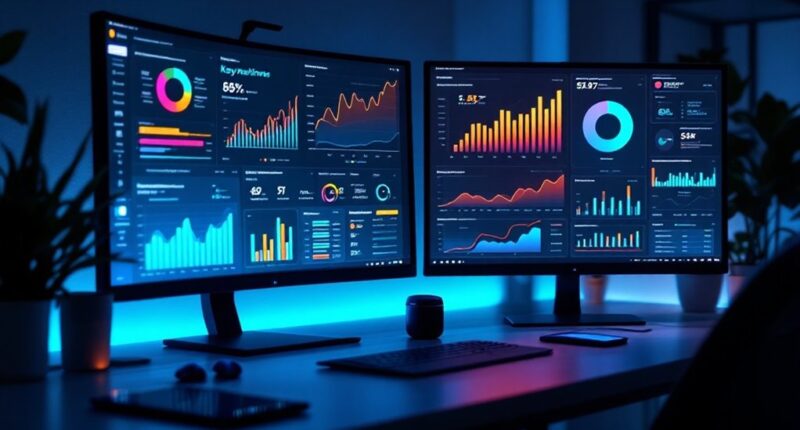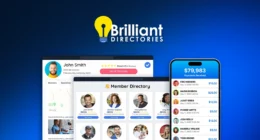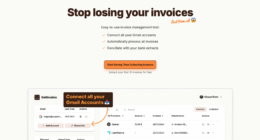Search Engine Marketing (SEM) software helps businesses manage and optimize their paid search advertising campaigns across platforms like Google and Bing. These tools combine keyword research, campaign automation, and performance analytics to maximize advertising ROI. Popular options include SEMrush, Ahrefs, and Google Keyword Planner, which offer features like automated bidding, audience targeting, and real-time tracking. Modern SEM platforms increasingly integrate AI capabilities and mobile optimization to stay competitive in the evolving digital landscape.
Quick Overview
- SEM software integrates keyword research, campaign management, and analytics tools to streamline paid search advertising across major platforms.
- Popular tools like SEMrush and Ahrefs provide comprehensive keyword research, competitor analysis, and performance tracking capabilities.
- Automated bidding strategies and AI-powered optimization help maximize ROI through intelligent budget allocation and real-time adjustments.
- Essential features include robust keyword research, A/B testing functionality, and cross-channel campaign management capabilities.
- Modern SEM platforms offer customizable dashboards and real-time tracking for data-driven decision-making and performance monitoring.
Understanding SEM Software Essentials
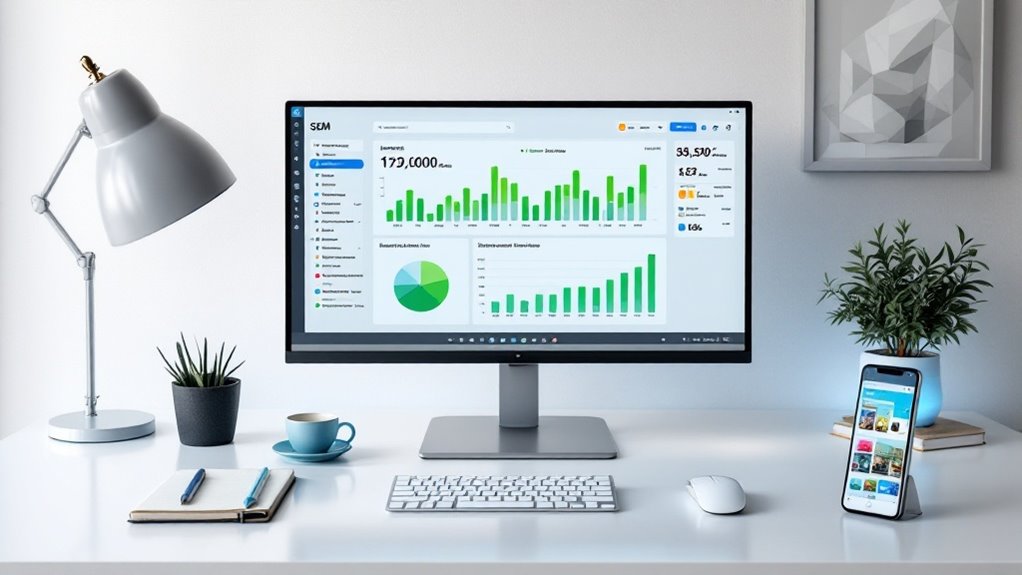
While digital marketing encompasses many strategies, Search Engine Marketing (SEM) software serves as the backbone for businesses looking to maximize their paid search advertising efforts. Modern SEM platforms combine essential tools that help companies manage their online advertising campaigns effectively and efficiently.
At its core, SEM software integrates several key components: extensive keyword research capabilities, campaign management tools, and detailed performance analytics. These platforms typically connect with major search engines like Google and Bing, offering automated features such as smart bidding and dynamic ad scheduling. Quality SEM software enables businesses to achieve measurable results through comprehensive tracking of advertising spend and campaign performance.
The software also provides robust targeting options, allowing businesses to reach specific audiences based on geography, demographics, and user behavior.
Additionally, these platforms excel in data analysis, offering real-time tracking, customizable dashboards, and detailed ROI monitoring to help businesses make data-driven decisions.
Top SEM Tools for Modern Marketing
Modern marketers have access to an extensive arsenal of SEM tools that streamline and enhance their digital advertising efforts.
Industry leaders rely on detailed platforms like SEMrush and Ahrefs for in-depth keyword research and competitor analysis, while Google Keyword Planner offers essential free insights for businesses of all sizes.
AI-powered solutions have revolutionized campaign management, with tools like Albert.ai and Optmyzr handling complex optimization tasks automatically. AI technology enables marketers to achieve better return on investment through sophisticated audience targeting.
Artificial intelligence transforms digital marketing by automating sophisticated campaign optimizations, making advanced management accessible to all marketers.
For analytics and reporting, platforms such as Google Analytics and Supermetrics help teams track performance and visualize results effectively.
Creative tasks benefit from user-friendly platforms like Canva and Creatopy, which simplify ad design and production.
Meanwhile, competitive intelligence tools such as iSpionage and WhatRunsWhere provide valuable insights into competitor strategies and market trends.
Maximizing ROI With SEM Platforms
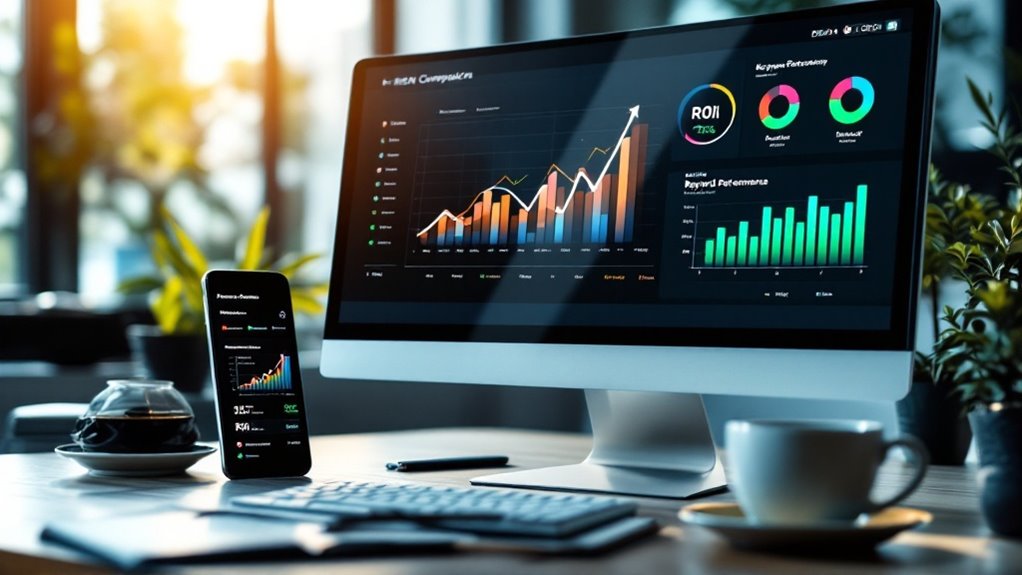
The successful implementation of search engine marketing tools leads directly to the core challenge facing marketers: maximizing return on investment (ROI) through strategic platform usage.
Modern SEM platforms offer robust features that, when properly utilized, can greatly boost campaign performance and cost-efficiency. Similar to automated marketing tools, these platforms help streamline repetitive tasks while improving overall efficiency.
To maximize ROI, marketers should focus on four key areas: automated bidding strategies that optimize spend based on performance goals, extensive audience targeting to reach high-value prospects, thorough keyword optimization using data-driven insights, and continuous performance tracking through advanced analytics. Ad scheduling and geographic targeting help optimize budget allocation across campaigns for maximum efficiency.
Platform features like dynamic keyword insertion, ad extensions, and custom audience segments help create more targeted campaigns.
Regular analysis of metrics such as click-through rates, conversion rates, and cost per acquisition enables marketers to fine-tune their strategies and achieve better returns on their SEM investments.
Key Features to Look for in SEM Software
Selecting the right SEM software requires careful evaluation of essential features that drive campaign success and efficiency.
Modern SEM platforms should include robust keyword research tools, thorough ad creation capabilities, and intelligent bid management systems. Just as Security Event Management systems analyze data in real-time to detect threats, effective SEM software continuously monitors campaign performance for immediate optimization opportunities.
The most effective platforms offer sophisticated analytics and reporting features, including conversion tracking and performance forecasting.
Essential components include A/B testing functionality for ad copy, automated bidding strategies, and real-time bid adjustments to maximize campaign performance.
Cross-channel campaign management has become increasingly important, allowing marketers to coordinate efforts across multiple search engines and social media platforms.
Quality software should also provide dynamic keyword insertion, budget allocation tools, and integration with popular analytics platforms.
These features work together to streamline campaign management and deliver measurable results across all digital marketing channels.
Future-Proofing Your SEM Strategy
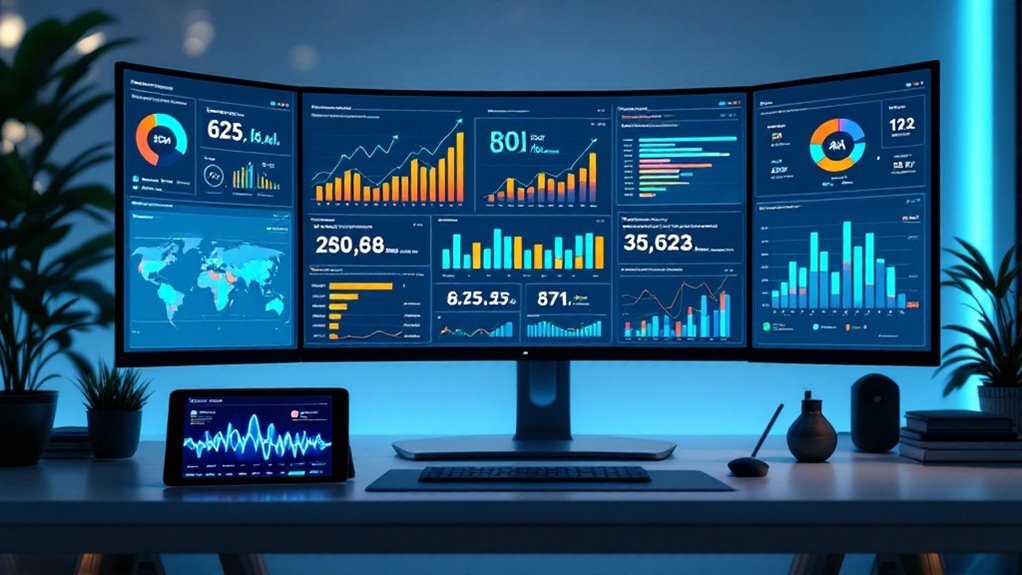
Future-proofing an SEM strategy requires businesses to embrace emerging technologies while maintaining adaptable foundational practices. Organizations must stay ahead by integrating AI-driven tools while focusing on user experience and technical optimization. Implementing data analytics tools helps businesses make more accurate predictions about customer behavior and campaign performance. Customer journey mapping solutions like Kissmetrics provide valuable insights for strategic decision-making.
| Strategy Component | Implementation Focus |
|---|---|
| AI Integration | Machine learning for SEO refinement |
| Voice Search | Conversational keyword optimization |
| Technical Foundation | Core Web Vitals and mobile-first |
| Content Evolution | Regular updates and intent matching |
To maintain competitive advantage, businesses should prioritize mobile optimization, implement structured data, and leverage predictive analytics. Regular content updates and monitoring of quality metrics guarantee sustained performance. Voice search optimization requires attention to natural language patterns and specific user queries. Additionally, maintaining strong technical SEO fundamentals while adapting to new technologies creates a balanced approach for long-term success.
Frequently Asked Questions
How Long Does It Take to See Results From SEM Campaigns?
Search Engine Marketing (SEM) campaigns typically show meaningful results within 4-6 months, though initial improvements may appear in 1-2 months.
The timeline varies based on several factors:
- Industry competitiveness
- Initial website authority
- Budget allocation
- Content quality
- Keyword strategy
Quick wins are possible through targeted strategies like local SEO and low-competition keywords.
However, sustainable, significant results generally require 6-12 months of consistent effort and optimization.
Can Small Businesses Compete Effectively Against Larger Companies in SEM?
Yes, small businesses can effectively compete against larger companies in SEM through strategic approaches.
While they may have smaller budgets, small businesses can leverage local targeting, focus on niche keywords, and capitalize on their agility.
Their ability to create personalized content and respond quickly to market changes gives them a distinct advantage.
What Percentage of Marketing Budget Should Typically Be Allocated to SEM?
While businesses often agonize over exact budget percentages, industry standards suggest clear guidelines for SEM allocation.
Generally, companies should dedicate 5-10% of their total revenue to marketing, with 40-50% of that going to digital marketing efforts.
Within the digital marketing budget, SEM typically commands 20-25%, split between SEO (10%) and PPC (14%).
However, these percentages may fluctuate based on industry competitiveness, company size, and growth objectives.
How Often Should A/B Testing Be Performed on SEM Advertisements?
A/B testing for search advertisements should be conducted every 30-60 days, with a maximum period of 90 days between tests. Each test should run for several weeks to gather statistically significant data.
Regular testing is essential to prevent ad fatigue, maintain engagement, and optimize performance. Factors influencing testing frequency include campaign budget, audience size, seasonal changes, and market competition.
Testing different elements like ad copy, visuals, and targeting helps maximize ROI.
Does Seasonal Timing Affect SEM Campaign Performance and Costs?
Like waves on a beach, seasonal timing greatly impacts campaign performance and costs.
During peak seasons, increased competition drives up click costs while consumer interest surges. Performance metrics fluctuate predictably, with higher conversion rates during seasonal events but also elevated advertising expenses.
Smart marketers plan campaigns three months ahead, adjusting budgets and strategies to match seasonal trends. Historical data and tools like Google Trends help optimize timing and resource allocation.
Conclusion
Success in modern search engine marketing requires robust software solutions that evolve with changing digital landscapes. Just as a master craftsman needs the right tools, marketers must carefully select and implement SEM platforms that align with their goals. By focusing on essential features, ROI optimization, and future scalability, businesses can build sustainable search marketing programs that drive measurable results in an increasingly competitive online marketplace.
